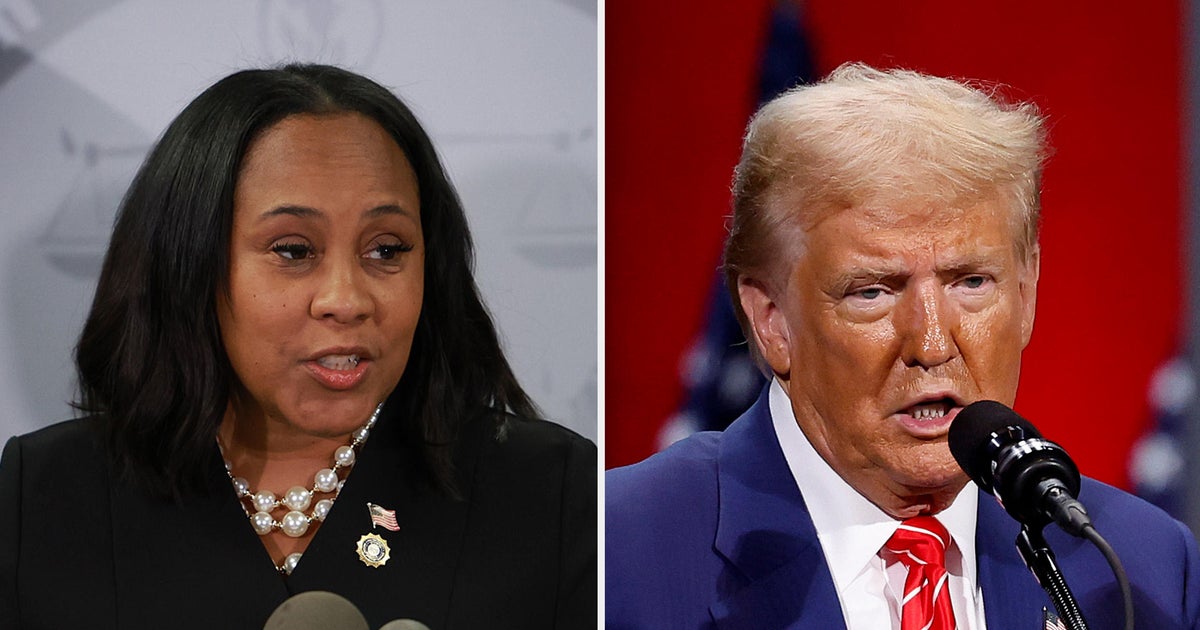Trump says millions in U.S. illegally to be deported starting next week
President Trump says millions of people living in the country illegally will be deported, beginning next week. In a pair of tweets Monday night — the eve of formally announcing his re-election bid — Mr. Trump said U.S. Immigration and Customs Enforcement would next week "begin the process of removing the millions of illegal aliens who have illicitly found their way into the United States."
"They will be removed as fast as they come in," he wrote.
An administration official told The Associated Press the effort would focus on the more than 1 million people who have been issued final deportation orders by federal judges but remain at large in the country. The official spoke on condition of anonymity to explain the president's tweets. The largest number of people deported by ICE was 409,824 in 2012.
It is unusual for law enforcement agencies to announce raids before they take place. ICE rarely announces operations in advance, especially large-scale ones like the one Mr. Trump addressed. The Washington Post reported in May that before the ouster of then Department of Homeland Security Secretary Kirstjen Nielsen, the White House pushed DHS — which oversees ICE — to conduct a sprawling operation targeting undocumented immigrants in major cities. That operation would have entailed the arrest of as many as 10,000 immigrants, not "millions."
Any such massive deportation blitz would affect not only undocumented immigrants with pending removal orders, but millions of mixed-status families with members who are U.S. citizens, particularly children.
Some in Mr. Trump's administration believe decisive shows of force — such as mass arrests — can serve as effective deterrents, sending a message to those considering making the journey to the U.S. that it's not worth the effort.
Mr. Trump has threatened a series of increasingly drastic actions as he has tried to stem the flow of Central American migrants crossing the southern border, a flow that has risen dramatically on his watch. He recently dropped a threat to slap tariffs on Mexico after the country agreed to dispatch its national guard and step-up coordination and enforcement efforts.
A senior Mexican official said Monday that, three weeks ago, about 4,200 migrants were arriving at the U.S. border daily and that the number has dropped to about 2,600.
Also on Monday, the U.S. government officially announced it would cut millions of dollars in foreign aid to Central America, warning governments in the region that assistance will only resume when they do more to prevent their citizens from migrating.
The move, which the president ordered in late March, disrupts a long-standing pillar of American foreign policy supported by most Democrats and Republicans in Congress. Lawmakers had been urging the administration to reverse course, fearing the end of American assistance will only exasperate the rampant poverty, deep-rooted political instability and widespread insecurity in El Salvador, Honduras and Guatemala, collectively known as the "Northern Triangle."
Immigration was a central theme of Mr. Trump's 2016 campaign and he is expected to hammer it as he tries to fire up his base heading into the 2020 campaign.
Mr. Trump will formally launch his re-election bid Tuesday night at a rally in Orlando, Florida — a state that is crucial to his possible path back to the White House.



